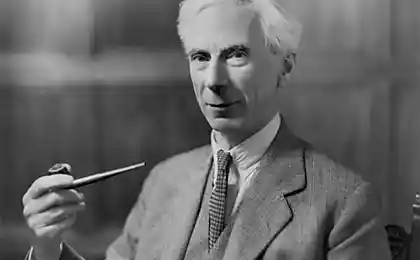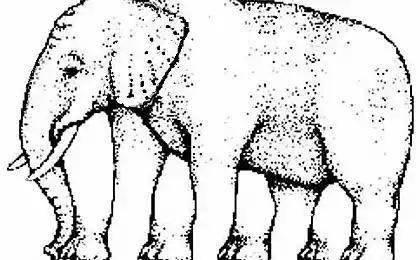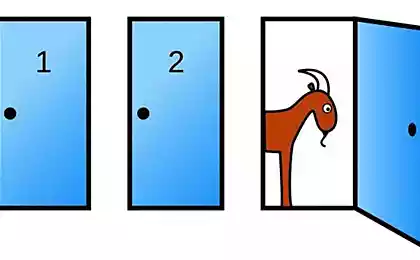436
The paradox of naturalness: why is it so difficult to "just be yourself"

© Leta Sobierajski
All around, from the authors of articles on popular psychology to famous entrepreneurs and speakers from TED, suggest us to strive for naturalness. But it is not clear how to achieve this — because the very effort to be suave means that you are doing some work on yourself. On this paradox — known since ancient times — it reflects New York Times columnist John Tierney. Just be yourself. This tip leads into a frenzy, and it still can be heard everywhere. "Be yourself" is recommended in any exciting situation: on a blind date, during a speech before an audience, with the job interview and even the first dinner with future in-law. Relax. Act natural. Just be yourself. But how can you be yourself when you get agitated? How can you make yourself relax? How can you try to not try to change themselves?
This makes no sense, but, according to Edward Slingerland, it is really essential paradox of humanity. Recently, he developed the theory of understanding of natural behaviour based on a synthesis of Eastern philosophy and research psychologists and neuroscientists recently. He calls this paradox the "paradox of Wu-Wei" (paradox of wu wei). "Wu Wei" is a Chinese term for natural action — in other words, actions that do not require additional effort. This term is similar to the concept of "surrender to the flow", which is often used by athletes — but it can be attributed to many other things besides sports. For example, to romantic relationships, politics and Finance (so some businessmen insist on having a drink with your partners before you sign the deal).
Orientalist Slingerland claims that people have been trying to find a way to "be yourself" and "stay in the flow" since that time, as began to live in large groups. In such settlements, it was impossible to rely only on community of blood, and people had to find another connecting element, which has become a religion. She provided them a safe pastime with each other and made it possible to work together toward common good goals.

"Trying not to try: the Art of naturalness"
But there was always the danger that someone will start to cheat, put their own interests at the forefront and would evade duties which had entrusted the society. Therefore, that you fully trust, it was not enough just to be prudent and diligent person to work with. It was necessary to show that your virtues are so natural that possession is given to you without much effort.
What "paradox of Wu-Wei" is very ancient, confirms the archaeological discovery made in 1993. On bamboo strips discovered in the caves near the Chinese village Gooden, had written the text, Dating from the third century BC. It says that in order to maintain public order, the politicians is not enough just to follow the known rules and to perform their duties. Politicians must have the right gut feeling about how to behave: "If you will try to be submissive, it wouldn't be a real submission. You can't try to be someone else, but at the same time can not and do not to try."
Since then, about this paradox pondered by many philosophers and theologians — Slingerland recounts their disputes in his new book, "Trying not to try: the Art of naturalness". Some supported Confucius — defending the view that in order to achieve naturalness, you must first make the effort. With the help of will and strict adherence to traditions, a young man, according to Confucius, was well enough to train the correct behavior, that it will be included in his habit. And then he will become virtuous, and his manners are graceful, and will continue to stay like this with no additional effort. In the same way as the speaker the better it will learn your speech, the more likely that it will sound improvised.
But can you really call this a natural behavior? If we turn to Daoism, is the current, evolved in parallel with Confucianism, do not. The adherents of this school believed that to achieve naturalness is to follow the rules, you need to release his goodness on the inside. You need to surrender to the flow, and for that it is better to prefer the formal teaching of personal meditation. Themselves Taoist did not recognize the technological advances of his time, went to live in the wilderness, where he was engaged in farming at the same time they ran the plow and not even used cattle. Slingerland calls them the first hippies.
The approach of the Chinese philosopher Meng-JI combines Confucianism and Taoism. Its essence can be formulated as: "Try, but not too much"
In the subsequent debate on how to achieve natural behavior was carried out in Zen-Buddhism and Christianity. Later, in an attempt to understand how the perception of naturalness is affected by morality, rational choice and feelings about these disputes were also joined by psychologists and neuroscientists.
"In psychology it is considered that the ancient Chinese philosophers were largely right, says Jonathan Schuler, a psychologist at the University of California, Santa Barbara — when someone has achieved excellence in his field, he's better then "surrender the flow". If you start to analyze everything endlessly, it is easy to come to a screeching halt — the-art "way" just trying to save you".
Natural behaviour, in whatever way it was achieved, has a lot of charm. Your authenticity makes you attractive, no matter whether you are to the crowd or just to one person. The best way to impress on a first date — not to mind that you really want to please.
Many businesses insist that before signing the deal to have a drink with partners for dinner. The reason, they suggest that ethanol makes the difficult trick or deception. Slingerland writes: "to Drink together — all the same what kind of act of disarmament. Just as shaking hands when meeting, symbolizes that you have no weapons, a couple of shots of tequila — suppress the control zone in the brain. Thus you say: "Now you sure you can trust me".
What to do if the drink does not? Better try to be natural or not? Slingerland recommends in this issue to keep the Golden mean. Efforts really needed to learn some skills. And if you follow the rules according to the precepts of Confucius, and tried to bring this skill to follow rules of automatism — this has its advantages: thus, you free up mental energy for other needs.
But the efforts may well be counterproductive, as understood by followers of Taoism. This is well illustrated by the example of experiments with the pendulum. The person who holds the pendulum in his hand, asked to keep it so that the pendulum was not moving. As a rule, Guinea has made so much effort to immobilize the pendulum that began to give much greater fluctuations than in the beginning of the experiment.
"In our culture, people are often forced to acquire some very special equipment, although in many areas to achieve success would be more important to know how to relax and indulge in activities like water flow, in some measure to forget myself in it," says Slingerland.
Slingerland am most impressed with the approach to the natural behavior of the Chinese philosopher Meng-JI, who lived in the third century BC, This approach combines Confucianism and Taoism. Its essence can be formulated as: "Try, but not too much." As illustrations of this principle, man-JI gave the following story.
One day the farmer came home after work completely exhausted. "I was in the field and helped the sprouts grow!", he explained to his children. The kids wanted to look at the work of his father, but saw in the field of shriveled sprouts that he was so much pulled and pulled up, which almost ruined them.
These sprouts for man-JI was a symbol of "natural actions": something that requires good cultivation. To get a harvest, we must work to plant seeds in the ground and then watering the sprouts. But at some point we have to trust nature. And let the sprouts, in turn, be yourself.
Source: theoryandpractice.ru























